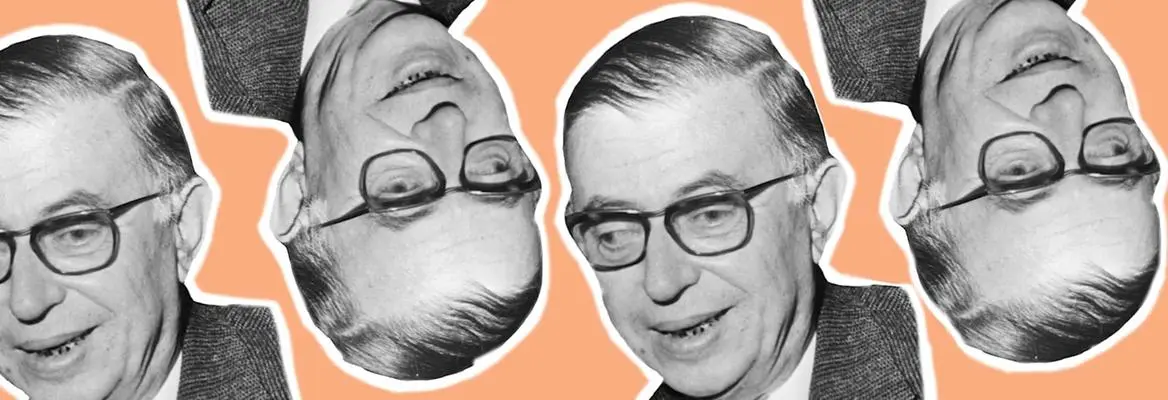Every philosopher must run the gauntlet of time. Philosophical ideas fall in and out of favor, but the acid test is whether we continue to debate a philosopher’s ideas long after they have left the scene. The anniversary of Jean-Paul Sartre’s birthday, almost forty years since his death, is an appropriate moment to look back on the legacy of a philosopher whose work helped to define an era, and whose ideas continue to resonate with the political climate today. Professor Richard Falk places Sartre alongside Noam Chomsky and Edward Said as one of the few individuals worthy of the title ‘public intellectual’. Yet towards the end of his life, even as Sartre moved further in the direction of political engagement, he lamented that his politics were not radical enough; perhaps that is why Sartre’s political philosophy is so highly disputed.
Since the publication of Critique of Dialectical Reason in 1960, scholars have largely interpreted Sartre’s political philosophy as ‘existential Marxism’: a critical appropriation of Marxism. Sartre encouraged this reception by often professing his affinity with Marxism, even stating that existentialism was parasitic to Marxism, a point he later retracted. But commentators who emphasize the influence of Marx overlook the signs of Sartre’s skepticism. Far from being a supporter of the French Communist Party, he rejected outright the dogmatic Marxism of dialectical materialism underpinning its ideology.
___
"If one reads my books, one will realize that I have not changed profoundly, and that I have always remained an anarchist."
___
While Marx’s influence is overemphasized, the role of anarchism deserves far more airtime than it currently gets. Sartre said it himself: “if one reads my books, one will realize that I have not changed profoundly, and that I have always remained an anarchist”. Not only do Sartre’s anarchist undertakings underscore his political positions, from his earliest writings all the way through to the post-war period, they also provide a far more radical foundation for his ideas.
The clearest anarchist element in Sartre’s political thought is the pursuit of a society free from authoritarianism. In the early 1950s, Sartre began sketching out his vision for an ideal society, brought about by the overthrow of existing systems of oppression through revolutionary activity. In the Critique, Sartre argues that the authority-oppression paradigm is made possible by institutionalization, where groups become conditioned to eschew individual freedom, adopting serialities and their concomitant social impotence. Individual freedom is immobilized by this process but not vanquished; the potential to reform as a group-in-fusion and direct their praxis towards an ideal survives.
Sartre’s anarchist contemporaries condemned institutions which were based on coercion and authoritarianism. The state and centralized authority received the brunt of their scrutiny, with many believing that the state was illegitimate, had no right to exist, and its abolishment would eliminate many social evils. The same concerns can be seen today in the activities of the Occupy Movement, the Invisible Committee, and the Tarnac 9, all of which have come to be known as Insurrectionary Anarchism. Sartre’s account of group formation demonstrates that not only did he share such concerns about coercion and authority, he argued forcefully against the oppression of institutionalized authority long before contemporary anarchists took up the cause. Sartre’s revolutionary solution likewise entailed the eradication of the existing order.















Join the conversation